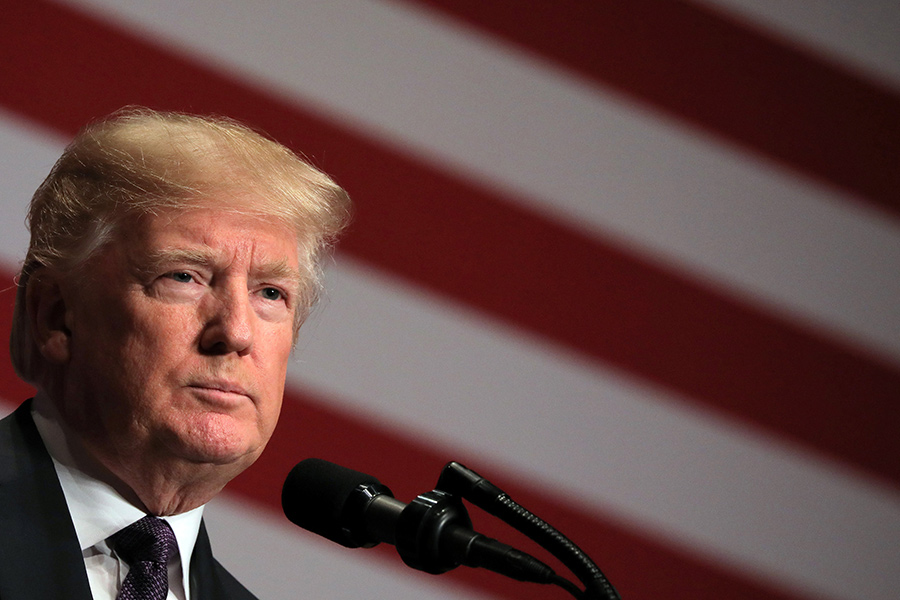Trump's decisions both puzzling and worrying
By Li Zheng | China Daily | Updated: 2017-12-28 08:29

On Dec 6, US President Donald Trump recognized Jerusalem as the capital of Israel, drawing global criticism and provoking violence in many countries, especially those in the Middle East. But on Dec 21, the United Nations General Assembly adopted a motion by a decisive 128-9 vote, with 35 abstentions, rejecting the United States' decision on Jerusalem.
The change in US policy on Jerusalem's status is just one of the disturbing decisions Trump has made since becoming president in January, which have undermined the US' role in global governance.
His conservative "America First" policy has created new risks for the global economy, including trade protectionism and anti-globalization. To correct the "unfair and imbalanced trade" the US suffered, as claimed by Trump, the US has launched several anti-dumping and anti-subsidy investigations and unilateral trade sanctions against China.
The US administration is also using the "America First" policy to sell billions of dollars worth of weapons and military equipment to other countries, including Saudi Arabia, Qatar, the Republic of Korea and Japan. And recently, Trump signed a National Defense Authorization Act to strengthen the US military with the help of the $700 billion US defense budget.
By resorting to trade protectionism, the US has increased the risks of trade wars with its trading partners, instead of honoring the global consensus on all countries working together to boost the world economy.
Besides, the US president has shown his disdain for international laws and rules by pulling the US out of multilateral agreements and international organizations. For example, he withdrew the US from the Trans-Pacific Partnership agreement and the Paris Climate Agreement because, as he said, they were unfavorable to the US economy. And he pulled out the US from UNESCO, saying the UN organization was biased against Israel, the US' closest ally.
Once the leader in global governance, the US now makes casual and irresponsible decisions, raising doubts over Trump's leadership. The rest of the world has been suffering the impact of the US administration's extreme sanctions and military threats to deal with regional issues. For example, Trump unilaterally decided to drop the most powerful non-nuclear bomb GBU-43 on Syria, apart from dropping tens of thousands of other bombs on Syria and Iraq, apparently to combat Islamists, including Islamic State terrorists. After the IS group's defeat, however, Trump said he will reduce the financial aid to the affected countries and won't help reconstruct the areas devastated by the bombings, as previously promised by the US, inviting severe criticism.
Moreover, Trump's military threats against and "extreme pressure" on the Democratic People's Republic of Korea has made Pyongyang more determined to become a nuclear power.
Trump's diplomatic style has become an uncertainty in itself. He holds conservative views but takes radical measures. Puzzling as they are, his fickle attitude and ambiguous strategies have often caused misunderstandings. Different from other leaders, both American and non-American, Trump uses his emotions and quirky ideas-many through Twitter-to deal with problems or to create them where there are none. He even called DPRK leader Kim Jong-un the "rocket man", intensifying tensions on the Korean Peninsula.
Worse, during the 11 months of Trump's presidency, the White House and the US State Department have sometimes spoken in different voices, suggesting the billionaire-turned-president treats the US as his personal company, sharing ideas with his staff and sending conflicting signals to distract his rivals.
It's time Trump realized politics and diplomacy are serious business, and the smoke bombs he launches will create more suspicion among global stakeholders in this already unstable world.
The author is an associate researcher at the Institute of American Studies, China Institutes of Contemporary International Relations.
























